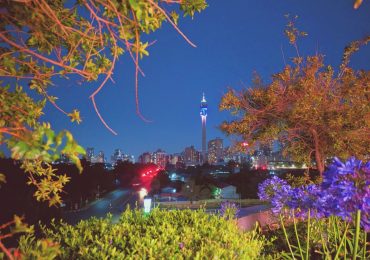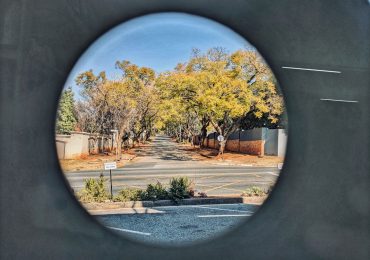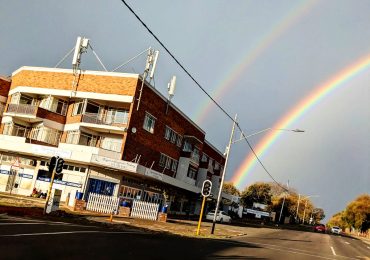The shortlist for the 2022 Booker Prize has been announced, including Zimbabwean author NoViolet Bulawayo.
Bulawayo is shortlisted for Glory, a satiric fable set in the fictional nation of Jidada, inspired by the 2017 coup that ousted Robert Mugabe.
This is Bulawayo’s second time on the final list: her debut novel, We Need New Names, was shortlisted for the prize in 2013.
The majority of the books on the shortlist this year are inspired by real events, from the Sri Lankan civil war and the fall of Mugabe to Ireland’s Magdalene laundries scandal and the murder of Emmett Till in the United States.
The six books are ‘set in different places at different times [and] are all about events that in some measure happen everywhere, and concern us all’, according to chair of judges Neil MacGregor.
2022 Booker Prize shortlist
(with citations from the judges)
- Glory by NoViolet Bulawayo
This energetic and exhilarating joyride from NoViolet Bulawayo is the story of an uprising, told by a vivid chorus of animal voices that help us see our human world more clearly. - Small Things Like These by Claire Keegan
Claire Keegan’s tender tale of hope and quiet heroism is both a celebration of compassion and a stern rebuke of the sins committed in the name of religion. - Treacle Walker by Alan Garner
This latest fiction from a remarkable and enduring talent brilliantly illuminates an introspective young mind trying to make sense of the world around him. - The Trees by Percival Everett
A violent history refuses to be buried in Percival Everett’s striking novel, which combines an unnerving murder mystery with a powerful condemnation of racism and police violence. - The Seven Moons of Maali Almeida by Shehan Karunatilaka
Shehan Karunatilaka’s rip-roaring epic is a searing, mordantly funny satire set amid the murderous mayhem of a Sri Lanka beset by civil war. - Oh William! by Elizabeth Strout
Bestselling author Elizabeth Strout returns to her beloved heroine Lucy Barton in a luminous novel about love, loss, and the family secrets that can erupt and bewilder us at any time.
MacGregor said:
‘These six books, we believe, speak powerfully about important things. Set in different places at different times, they are all about events that in some measure happen everywhere, and concern us all. Each written in English, they demonstrate what an abundance of Englishes there are, and how many distinct worlds, real and imaginary, exist in that simple-seeming space, the Anglosphere.
‘Two—Oh William! and Treacle Walker—are about the inner life, as a young boy and a middle-aged woman, in their particular ways, come to a new understanding of who they are and what they might become. The other four books address long national histories of cruelty and injustice, in Sri Lanka and Ireland, Zimbabwe and the United States, and in each case the enduring historical tensions provide the dilemmas in which the characters, like their societies, are put on the rack.
‘Why did we choose these six? In every one, the author uses language not only to tell us what happens, but to create a world which we, outsiders, can enter and inhabit—and not merely by using words from local languages or dialects. NoViolet Bulawayo’s incantatory repetitions induct us all into a Zimbabwean community of memory and expectation, just as Alan Garner’s shamanic obliquities conjure a realm that reason alone could never access. Percival Everett and Shehan Karunatilaka spin fantastical verbal webs of Gothic horror—and humour—that could not be further removed from the hypnotic, hallucinatory clarity of Claire Keegan’s and Elizabeth Strout’s pared-down prose. Most important, all affirm the importance and the power of finding and sharing the truth.’
The six shortlisted authors represent five different nationalities and four continents, with an equal split of men and women.
The list features the oldest author ever to be shortlisted: Alan Garner will celebrate his eighty-eighth birthday on the night of the prize announcement ceremony.
Half of the list is published by independent publishers, including first time appearances from Influx Press and Sort of Books.
First awarded in 1969, the Booker Prize is open to writers of any nationality, writing in English and published in the United Kingdom or Ireland. The judges this year are MacGregor, Shahidha Bari, Helen Castor, M John Harrison and Alain Mabanckou.
The Booker Prize winner receives £50,000 (just over R1 million). Each of the six authors shortlisted will receive £2,500 and a specially bound edition of their book.
The winner will be announced at the Roundhouse in London, United Kingdom, on October 17.
Last year’s Booker Prize winner was South African author Damon Galgut, for his novel The Promise. Here’s hoping Africa can make it two in a row.





